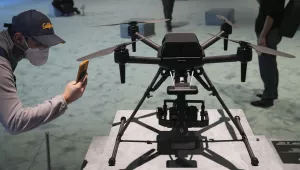
Cyber Project
-
Faculty Chair

-
Faculty Chair

-
Project Co-Leader

-
Faculty Affiliate

-
Fellow

About the Cyber Project
Forty years ago, an interdisciplinary group of Harvard scholars – professors, researchers and practitioners – came together to tackle the greatest threat of the Cold War: the fear of a nuclear exchange between the Soviet Union and the United States.
The Cyber Project, 2016-2020, looked to recreate that interdisciplinary approach to tackle an emerging threat of the time: the risk of conflict in cyberspace.
The problems that confronted leaders in cyberspace remain substantial and diverse: how to protect a nation’s most critical infrastructure from cyber attack; how to organize, train, and equip a military force to prevail in the event of future conflict in cyberspace; how to deter nation-state and terrorist adversaries from conducting attacks in cyberspace; how to control escalation in the event of a conflict in cyberspace; and how to leverage legal and policy instruments to reduce the national attack surface without stifling innovation. These are just a sample of the motivating questions that drove the project's work.

China Cyber Policy Initiative
China’s capabilities and intentions in cyberspace have and will increasingly have a significant impact on the various interests in the international community. However, the study of the intersection between China policy scholarship and cyber policy scholarship is relatively recent, and rapidly evolving. There is limited understanding and analysis on what has happened, what is happening, and what China’s capabilities and intentions may be now and in decades to come.
The China Cyber Policy Initiative, active 2019 to 2020, sought to tackle those questions and offer thoughtful, in-depth, evidence-based analysis to inform public discourse on Chinese cyber issues and assess and communicate both the positive and more challenging consequences for the international community.

Learning from Cyber Incidents
The focus of this work expanded on the concept of a “Cyber National Transportation Safety Board (NTSB)” and creating a “Near Misses” reporting system, both modeled on how safety improvements are made following an aviation incident. With support from the National Science Foundation and the Hewlett Foundation, the Belfer Center is hosting a series of workshops in 2021.

Data Privacy and Security Legislation Efforts
The Belfer Center's Cyber Project and the R Street Institute's Cybersecurity and Emerging Threats Team worked together to identify roadblocks to a federal data security and privacy law, drawing upon research and engagement with stakeholders to identify and recommend appropriate courses of action to find compromise on federal legislation.
Research included topics like civil rights in privacy, arbitration and covered entities and data.




























































